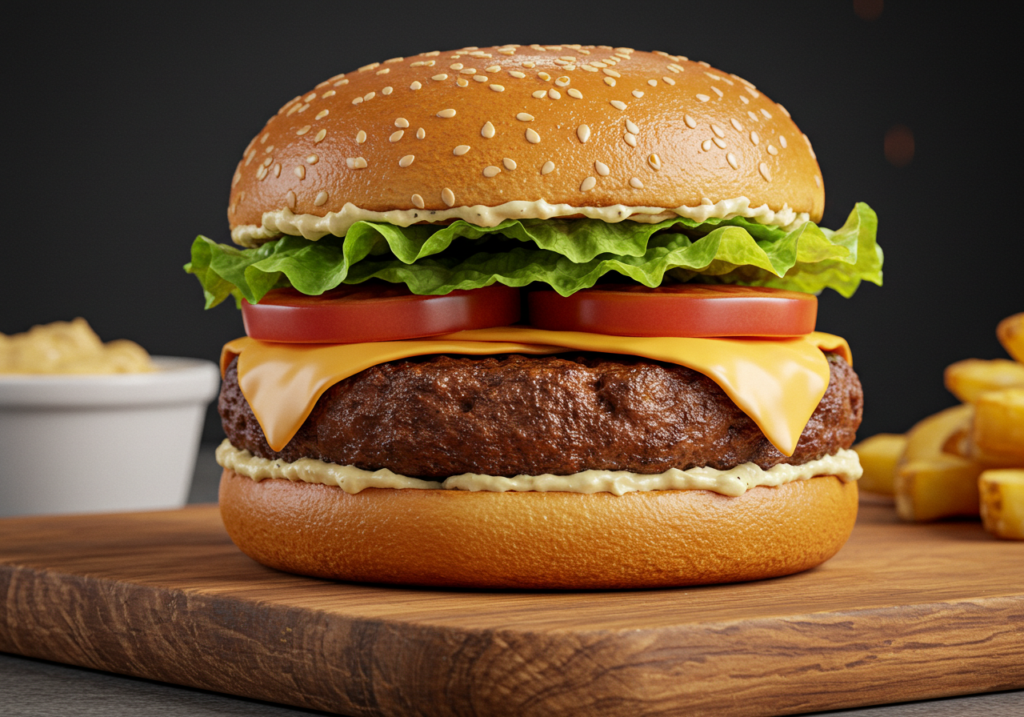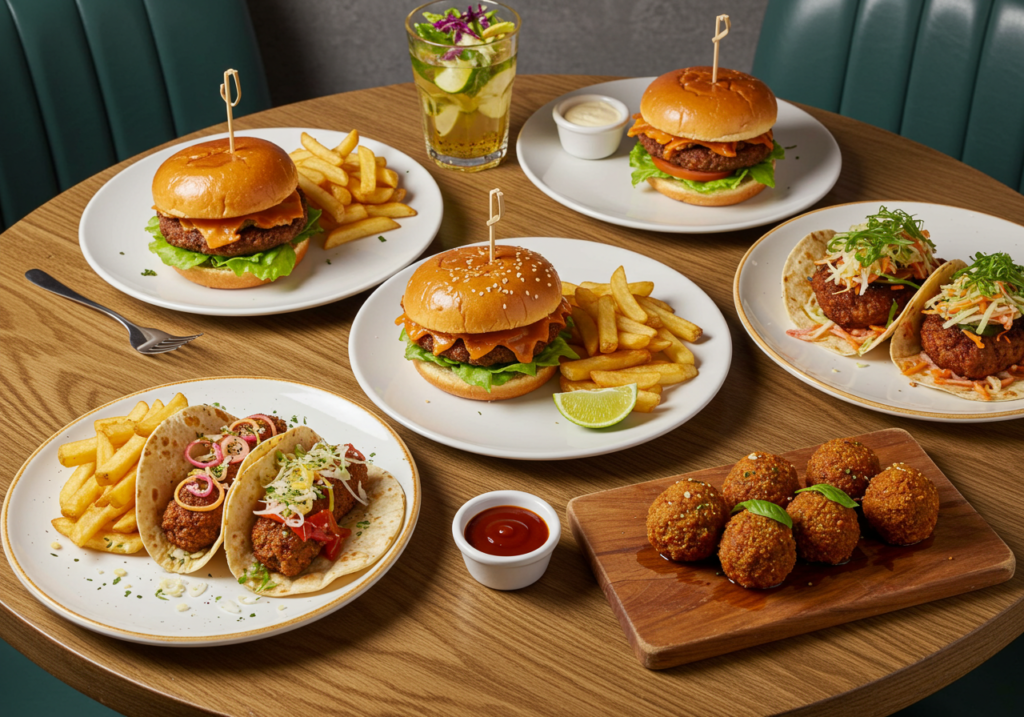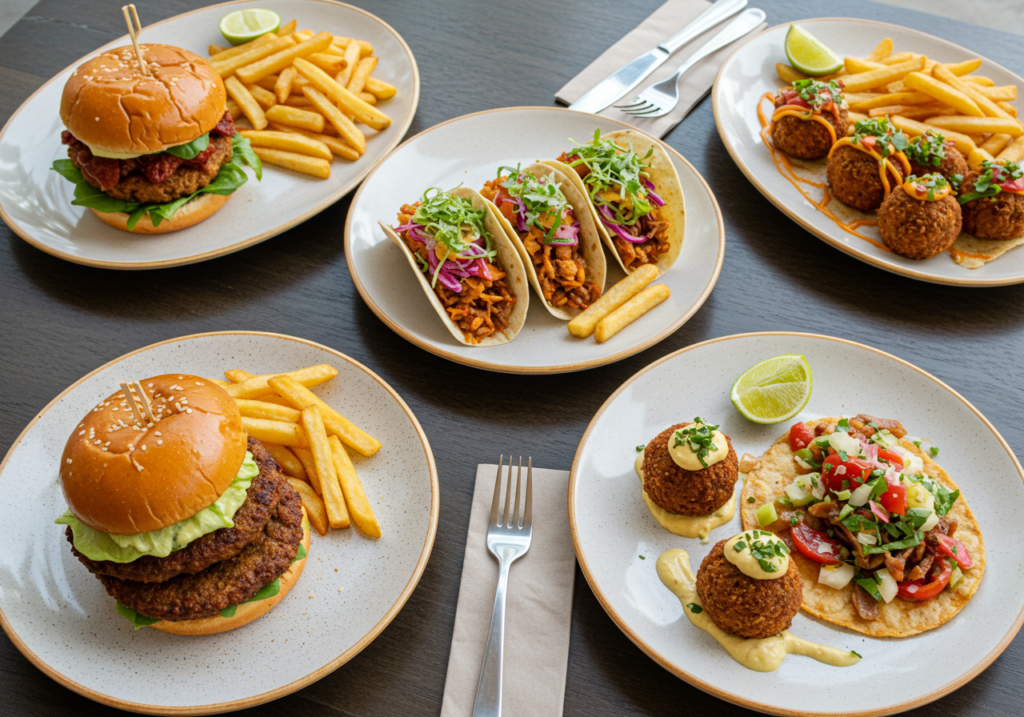Just a decade ago, the idea of eating a burger made from plants that tasted like beef might have sounded futuristic. Fast forward to today, and plant-based meat has moved from niche shelves in health food stores to the menus of global fast-food chains. Companies like Beyond Meat and Impossible Foods have changed the way people think about meat alternatives, creating products that look, cook, and even “bleed” like beef.
But is this just a passing food trend, or are we witnessing a permanent shift in how the world eats? Let’s explore the rise of plant-based meat and whether it’s truly here to stay.

Why Plant-Based Meat is Booming 🌱
The growth of plant-based meat isn’t happening by accident. Several factors are fueling its popularity:
- Health Consciousness: Many consumers are trying to cut down on red meat due to health concerns like cholesterol, heart disease, and obesity. Plant-based alternatives promise protein without the downsides of animal fat.
- Environmental Concerns: Producing beef and pork requires enormous resources—land, water, and energy—while also generating greenhouse gases. Plant-based meat offers a more eco-friendly alternative.
- Animal Welfare: For ethical eaters, these products are a way to enjoy meaty flavors without harming animals.
- Mainstream Accessibility: Fast food giants like Burger King, McDonald’s, and KFC now feature plant-based items, making it easier for everyday consumers to try.
Technology Behind the Taste 🍔
Unlike old-school veggie patties made of beans or soy chunks, today’s plant-based meats use science to mimic real meat.
- Protein Sources: Common bases include soy, pea protein, wheat gluten, or even fungi.
- Fat & Juiciness: Coconut oil and sunflower oil replicate the richness of animal fat.
- Color & “Bleed”: Ingredients like beet juice or soy leghemoglobin (used in Impossible Burger) create a realistic, meat-like look.
- Texture: Advanced food processing techniques align plant proteins to mimic the fibrous chew of muscle.
👉 The result? Burgers, sausages, and chicken alternatives that can fool even dedicated meat eaters.
The Market Numbers 📊
The plant-based meat industry has exploded in the past few years:
- According to research, the global market for plant-based meat was valued at over $7 billion in 2022 and is projected to keep growing.
- Supermarkets dedicate entire freezer sections to meat alternatives.
- Restaurants across the globe are expanding menus to include at least one plant-based protein option.
This growth suggests that it’s more than just hype—it’s a movement.
Challenges Ahead 🚧
For all its momentum, the plant-based meat industry faces real challenges:
- Price: Plant-based options are still more expensive than traditional meat. Until prices drop, many shoppers see them as a luxury rather than a staple.
- Health Debate: While marketed as healthier, some critics argue that heavily processed ingredients, sodium levels, and additives may offset the benefits.
- Taste Preferences: Not everyone is convinced. Some consumers still find the flavor or texture lacking compared to real meat.
- Competition from Cultured Meat: Lab-grown or “cultivated meat” (real meat grown from animal cells) could disrupt the plant-based market in the near future.
Is Plant-Based Meat Here to Stay? ✅
The short answer: Yes—but with evolution.
- Flexitarians, or people who eat mostly plant-based but still include some meat, are driving much of the demand. This isn’t about converting everyone to veganism—it’s about giving more choices.
- Companies are innovating constantly, aiming for better taste, lower prices, and cleaner labels.
- As environmental and ethical conversations grow louder, plant-based meat is positioned as part of the long-term solution.
While it may not replace animal meat entirely, it’s clear that plant-based options are carving out a permanent spot on grocery lists and restaurant menus worldwide.




Final Thoughts 🌎
The rise of plant-based meat represents more than just a food trend—it’s a cultural shift. Driven by health, sustainability, and ethics, it has already changed how we view what belongs on our plates. Challenges remain, but innovation and consumer demand are pushing the industry forward.
So, is plant-based meat here to stay? Absolutely—but it will keep evolving. In the years ahead, expect even tastier, healthier, and more affordable options that choose between plants and meat less about sacrifice and more about preference.











Leave a Reply